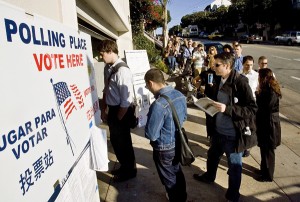
The November 8th mayoral election in San Francisco is ranked choice voting's biggest moment. Other cities (including Oakland and even San Francisco in previous less-contested elections) have used this "instant runoff system" before. But this is by far the most consequential: A major U.S. city that's politically progressive and has a diverse population with many different languages. Plus there are --gulp! -- 16 candidates with none likely to win a majority in the first round.
Exciting? Perhaps. But I can tell you from first-hand experience that political insiders -- campaign strategists, pollsters, and most candidates -- would like nothing more for ranked choice voting to be, well, recalled by the voters.
A little background. Before becoming a journalist at KQED I worked in politics and government. I was press secretary to Mayor Art Agnos and Chief of Staff to then-State Controller Gray Davis. I was also a partner in a political consulting firm that, among other things, managed campaigns for local and statewide candidates.
Political strategists are about one thing: Winning. How do you win? Raise a lot of money, buy ads on TV and radio, dig up dirt on your opponents, rack up enough endorsements, mobilize your ground operation and try to win free media coverage.
Ranked-choice voting makes almost all of those things harder...